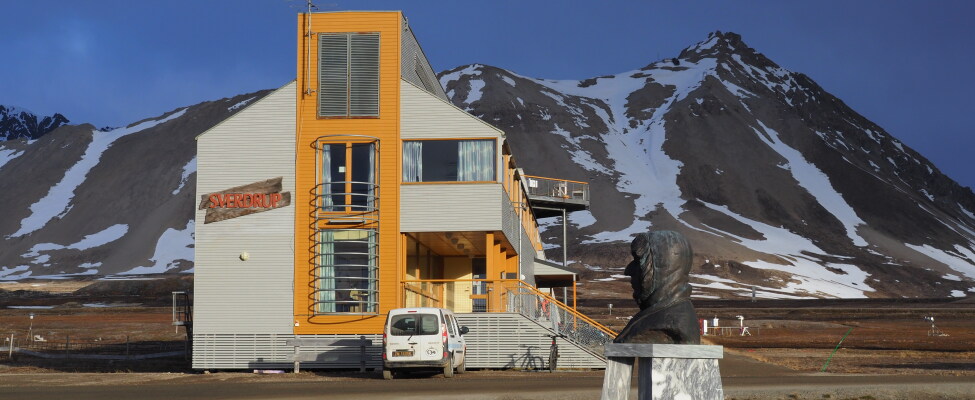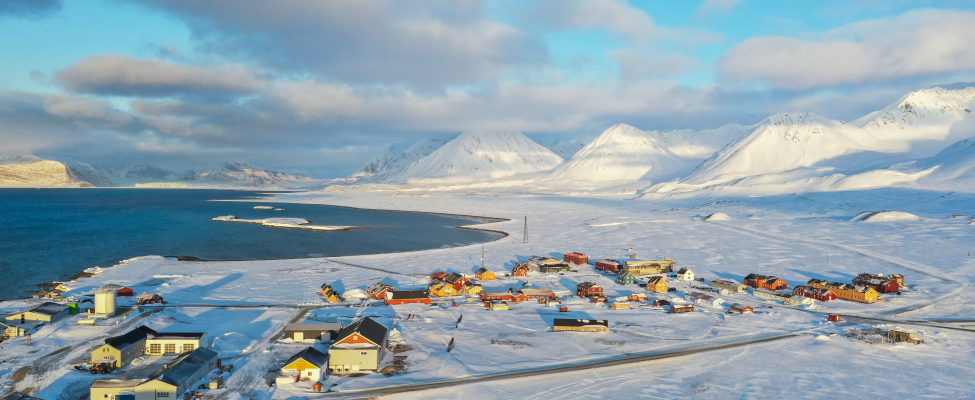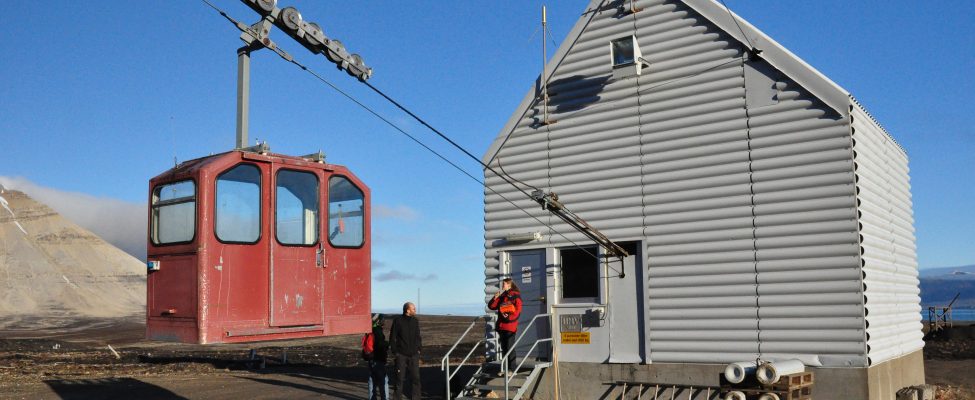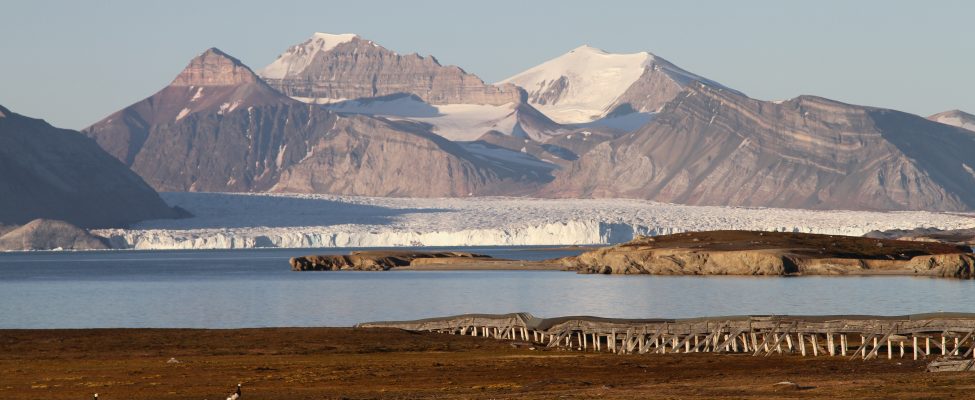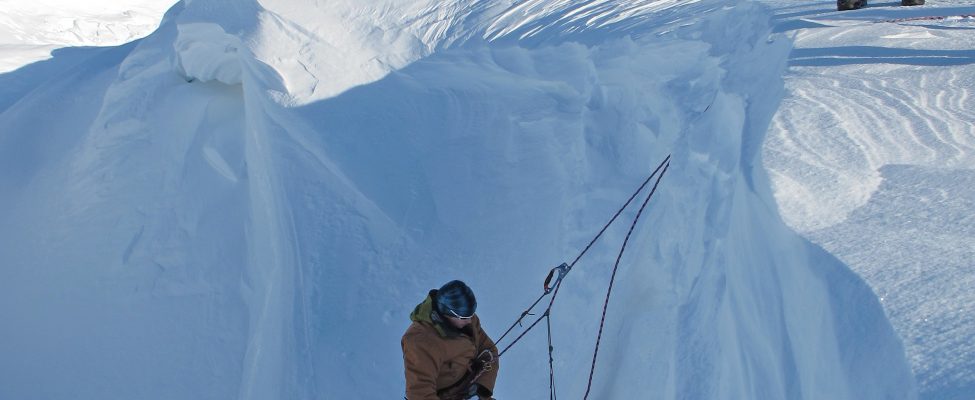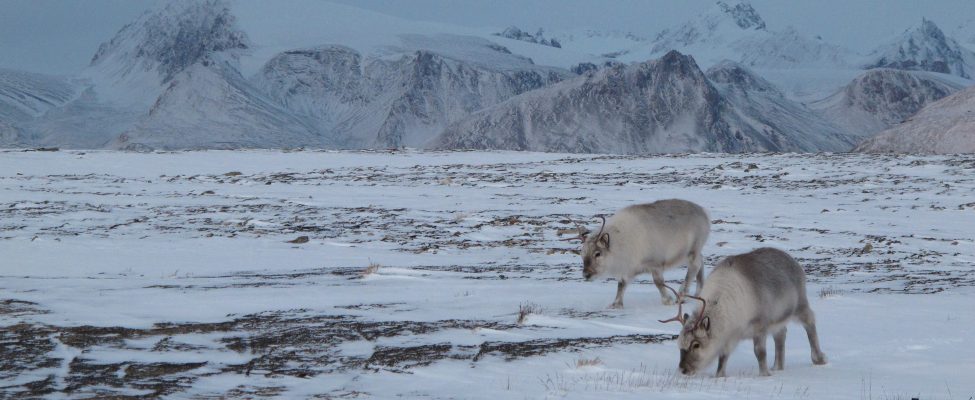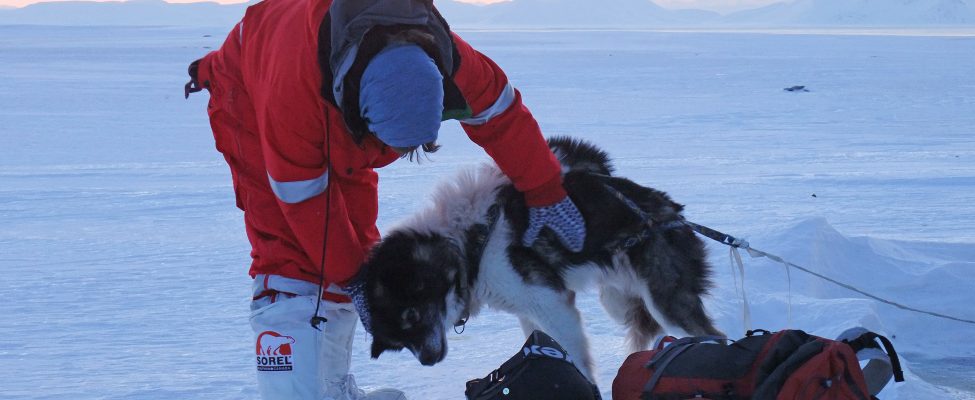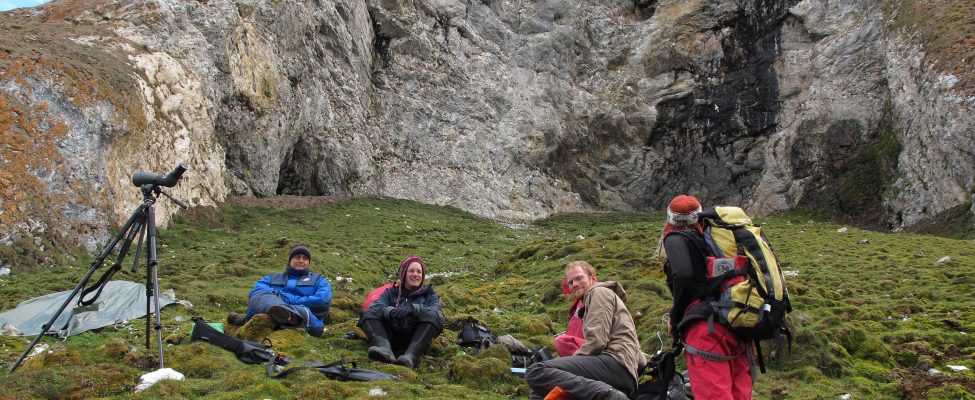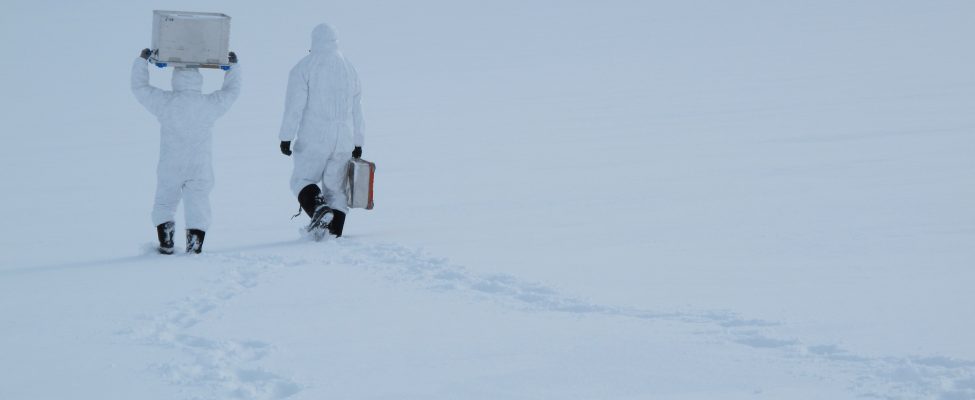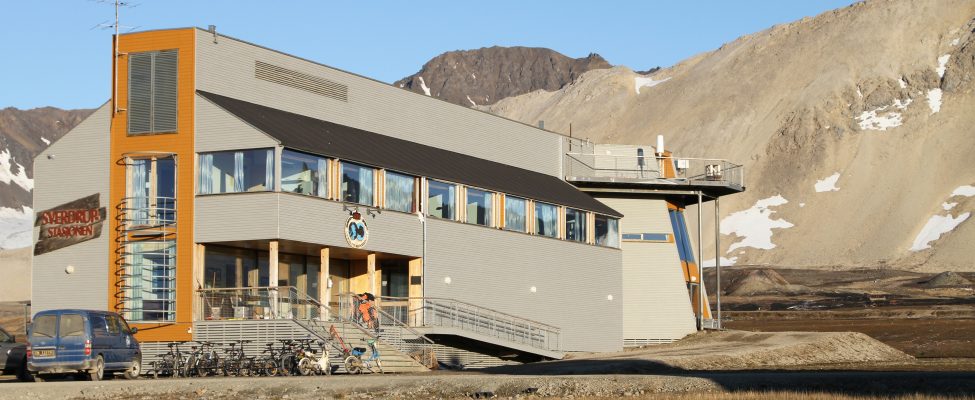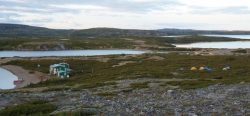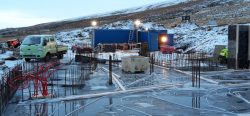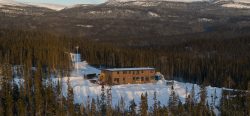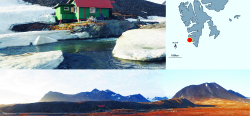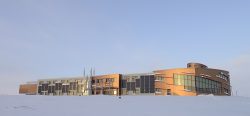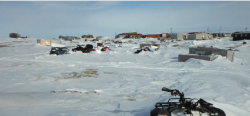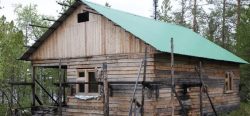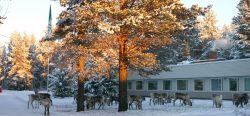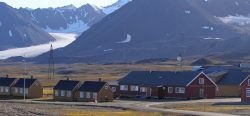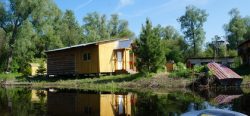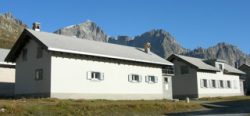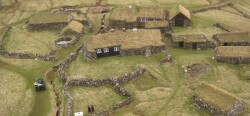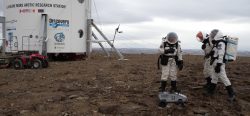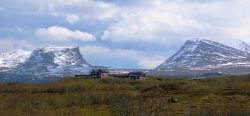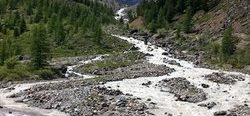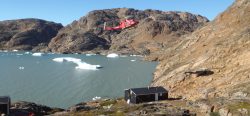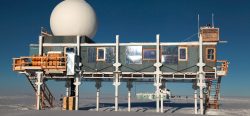Contact Details
9173 Ny-Ålesund
NORWAY
Research Coordinator: Ingrid Kjerstad
TA/RA contacts:
Ingrid Kjerstad
- Phone: (+47) 7902 7400 (general) Tel: (+47) 7902 7401 (Head, NPI Sverdrup)
- Link: http://sverdrup.npolar.no
STATION NAME AND OWNER
NPI Sverdrup at Ny-Ålesund Research Station is owned and managed by the Norwegian Polar Institute.
LOCATION
NPI Sverdrup is part of Ny-Ålesund Research Station which is located on the northern side of the Brøgger Peninsula at the southern shore of Kongsfjorden, Svalbard, Norway. Ny-Ålesund Research Station is a Norwegian research and monitoring infrastructure site, hosting several national and international institutions and their long-term research programmes and projects. Infrastructure services are provided by Kings Bay AS. Ny-Ålesund is located approximately 100 km north of Longyearbyen, the administrative centre on Svalbard.
BIODIVERSITY AND NATURAL ENVIRONMENT
Ny-Ålesund is surrounded by arcticDefinitions of the Arctic vary according to environmental, geographical, political, cultural and scientific perspectives. Some scientists define the Arctic as areas having a high latitude, long winters, short, cool summers,... More tundraA type of ecosystem in which tree growth is limited by low temperatures. The origin of the word is from from the Kildin Sami word t?ndâr, meaning "uplands" or "treeless mountain tract". In the northern... More and river plains, while the mountains in the inner part of the Brøgger Peninsula have many small glaciers. Large glacierA glacier is a large, persistent body of land-based ice that forms over many years where the accumulation of snow is greater than its loss (ablation). The ice in a... More tongues flow into Kongsfjorden on the eastern and northern side of the fjord. Most of the birds living in Svalbard are breeding on small islands or on bird cliffs in Kongsfjorden. Reindeer and foxes are common visitors in Ny-Ålesund. Polar bears and seals are often seen close to the settlement, and walrus and beluga are observed regularly.
HISTORY AND FACILITIES
Ny-Ålesund was a mining town until the 1960s, when the coal mining activity was shut down. After a few years of inactivity Kings Bay AS was revived as an infrastructure provider, and Ny-Ålesund entered a new phase – as a location dedicated to research and environmental monitoring. Today, 11 nations have a long-term presence in Ny-Ålesund, and scientists from many more nations visit Ny-Ålesund Research Station. NPI Sverdrup hosts Norwegian projects and research groups from nations without a long-term presence in Ny-Ålesund. NPI Sverdrup provides logistical support (snowmobiles, boats, and equipment), workshops, office facilities, and field storage, while common specialised laboratory space is available through Kings Bay. One of the main activities of NPI is to carry out long-term atmospheric monitoring at the Zeppelin Observatory (which is located on the Zeppelin Mountain (472 m a.s.l.) and accessible by cable car). NPI Sverdrup can provide office space for up to 25 people. NPI Sverdrup is operated year-round with a permanent staff of seven persons.
The Norwegian Polar Institute (NPI) has been assigned the role of being Norway’s host at the research station. NPI has also been tasked with implementing and following up the research strategy on-site, as well as serving as the point of contact for national and international research activities. Kings Bay AS owns the land and most of the buildings in Ny-Ålesund, and provides infrastructure support services for research activity in the area.
More than 20 institutions run long term projects and programmes in Ny-Ålesund. Ten of these institutions (from 11 nations) have a key function, in that they have long-term rental agreements with Kings Bay, and assess, accept and host projects in Ny-Ålesund initiated by researchers from their respective countries.
GENERAL RESEARCH AND DATABASES
Ny-Ålesund Research Station is ideal for research and environmental monitoring related to climate changeAccording to the United Nations Framework Convention on Climate Change, climate change is change in the climate of the whole Earth or a region of the Earth that is believed... More, long range transportation of pollutants, UV-radiation and related biological effects, physiology, eco-toxicology, arcticDefinitions of the Arctic vary according to environmental, geographical, political, cultural and scientific perspectives. Some scientists define the Arctic as areas having a high latitude, long winters, short, cool summers,... More marine and terrestrial ecosystems, as well as other research disciplines. Research and environmental monitoring activities at Ny-Ålesund Research Station are organised in four flagship programmes focusing on marine, terrestrial, atmospheric, and glaciological research. The combination of a northern location, a coastal setting, a heterogenous landscape, and relatively easy access provides a unique environment for research and monitoring and makes Ny-Ålesund a key location for such activities in the High ArcticDefinitions of the Arctic vary according to environmental, geographical, political, cultural and scientific perspectives. Some scientists define the Arctic as areas having a high latitude, long winters, short, cool summers,... More. Data originating from observations at Ny-Ålesund Research Station are a subset of the SIOS Data Management System – a virtual data centre offering unified access to data. Developing an efficient system for gathering observations and sharing data is a key activity for SIOS – Svalbard Integrated ArcticDefinitions of the Arctic vary according to environmental, geographical, political, cultural and scientific perspectives. Some scientists define the Arctic as areas having a high latitude, long winters, short, cool summers,... More Earth Observing System – an international partnership of research institutions studying the environment and climateThe average weather we would expect over a long period of time (seasons, years, decades). Climate varies from place-to-place across the Earth. Climate is determined by long-term (over at least... More in and around Svalbard.
HUMAN DIMENSION
Ny-Ålesund Research Station is only accessible for researchers. During the peak season (June-August), 150-180 persons stay at the station, but the number typically drops to 40-60 people in autumn and winter. Unless campaigns are being conducted, only the permanent staff (30-40 people) is present during the winter months. Ny-Ålesund is also home to the largest collection of protected buildings in Svalbard.
ACCESS
Ny-Ålesund is accessible by plane from Longyearbyen 2-4 times per week. Longyearbyen airport (LYR) is serviced daily by commercial aircrafts (SAS and Norwegian) from mainland Norway. Flight time between Longyearbyen and Ny-Ålesund is approximately 25 minutes. Cargo and heavy instruments/equipment should be sent to Ny-Ålesund by the cargo ship that arrives 8-10 times a year.
As a follow-up to the research strategy for Ny-Ålesund Research Station, which was introduced in 2019, a dedicated and comprehensive web site has been set up. On https://nyalesundresearch.no you will find detailed information about how to plan, prepare for and carry out your research project in Ny-Ålesund.
TAKE A TOUR AROUND THE STATION
This service is provided by INTERACT partner MAPILLARY
